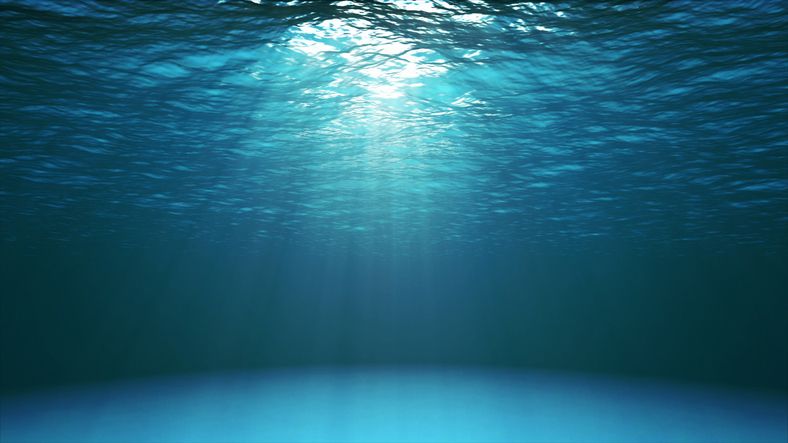Tony Chen is co-founder and CEO of Manolin, a software and data analytics company that builds disease-detection models for aquaculture, based in Denver, Colorado.
The views expressed in this guest commentary are the author’s own and do not necessarily represent those of AFN.
Investment in space companies reached a record $8.9 billion in 2020, and Virgin Galactic made history with the first space tourism flight this summer. Previously dominated by research and government agencies, the space industry has been propelled by private interests in recent years. Now, many are approaching the ocean with a similar lens – and the return on investment goes far beyond business.
“The ocean is a $100 trillion market opportunity,” says Adam Draper, managing director at BoostVC and a seed investor in Coinbase. “This is the largest untapped investment opportunity in my lifetime.”
The ocean sits at the center of the climate crisis. It’s absorbing one-third of the human population’s carbon emissions and is heating faster than scientists had predicted, according to a 2019 study published in Science. But protecting the ocean isn’t simply a moral obligation to our planet; the ocean will play an increasingly critical role in global food security.
More than 3 billion humans depend on marine sustenance for their livelihoods. However, 90% of marine fish stocks are now fully exploited, overexploited, or depleted. Ocean aquaculture fills this critical gap in supply and demand. It already provides the majority (52%) of the world’s fish for human consumption.
Still, ocean technology comprises a fraction of the booming agrifoodtech sector, which saw an increase in investment deals by as much as 34.5% year-over-year in 2020. In terms of innovation, this is a massive blind spot.
“The first World Oceans Day was more than two decades after we first celebrated Earth Day. Everyone touches land, but not everybody is physically connected to the ocean,” says Amy Novogratz, co-founder and managing partner at Netherlands-based Aqua-Spark, the first and largest investment fund focused on sustainable aquaculture.
Farm-raised fish are some of the most resource-efficient animal proteins available, requiring relatively little energy and few inputs to grow. They’re also some of the most-tracked food products. For example, the health status of Norway’s 400 million active farmed fish is publicly available in real-time, as well as any farm treatments or disease outbreaks.
Predictive technology transformed critical services throughout the Covid-19 pandemic; and now, the same can be done for our food systems. Millions of satellites and sensors have already collected ocean and environmental data spanning decades. As the climate crisis continues to disrupt global supply chains, this data can be used to build healthier, more resilient aquaculture farms.
“Because there has been little innovation in ocean tech until now, the vast impact you can make with ocean tech is making it a very attractive opportunity,” Novogratz says.
Leaders can look to Norway as an example. What Norwegian salmon farmers have done in the past 30 years represents some of the largest advancements in food production. The industry has enabled a 99% reduction in antibiotic use since the late 1980s by closely monitoring and regulating its ocean impact.
Norway is smaller than the state of California, yet it produces half of the world’s salmon. Ocean sustainability is a top national concern. Seafood entrepreneurship there is heavily supported by organizations like state-owned Innovation Norway, the NCE Seafood Innovation Cluster representing more than 90 industry partners, and Hatch, the world’s first aquaculture accelerator. The country is home to the world capital of aquaculture innovation, Bergen, and some of the most sustainable aquaculture farms globally.
Private interests around the world are tuning into the opportunity for ocean innovation. US agrifoodtech investor S2G Ventures made commitments of up to $100 million in oceans and seafood investment in 2020. This year, the European Institute of Innovation and Technology, funded by the EU, announced new projects to accelerate innovation in sustainable aquaculture. Meanwhile, food giants like Cargill, Chevron, and Google parent Alphabet have all made sustainable aquaculture investments of their own.
This shift is redefining how we think about ocean sustainability. Traditional conservation, while necessary and important, is just one part of the discussion. Right now, we have only scratched the surface of the potential for positive impact: world aquaculture production saw a total farm gate sale value of $264 billion in 2018.
Like what we’ve seen in the space industry, this shift can happen quickly. Government and private industry can work simultaneously and together to solve unprecedented hurdles. The ocean may be the final frontier for private investors – and it may also be a critical piece of the puzzle in our global efforts to combat the climate crisis.





